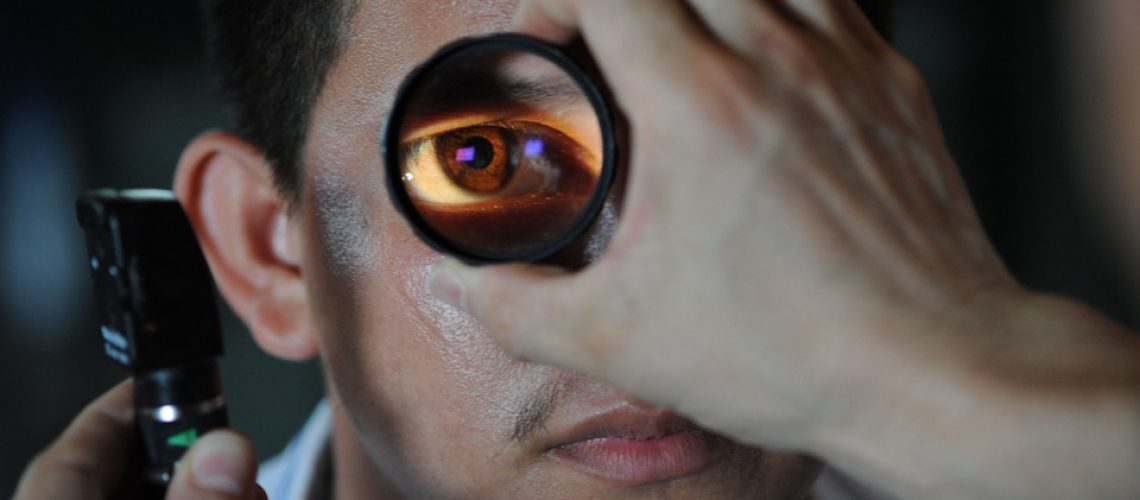Best Retinal Detachment treatment in kalaburagi | Kamal Eye Hospital
Retinal detachment is a condition where the retina, a thin layer of tissue, separates from the back of the eye. Retinal cells separate itself from the layer of blood vessels which provide the required oxygen nourishment to the retinal cells.
Retinal detachment is an emergency situation which needs immediate attention from an expert and hence treated rightly.
Read on to know more on the retinal detachment and its risk factors!
What is Retina ? Importance
Retina is a layer of tissue, a light-sensitive membrane that is present at the back of the eye. When light passes through your eye, the lens focuses an image on your retina. The retina helps convert this image to signals which is communicated to the brain via the optic nerve. Retina works in coordination with cornea, lens and other parts of the eye along with the brain to produce normal vision.
Retinal detachment symptoms:
Retinal detachment is a painless condition yet one has to know the following symptoms to not let the condition worsen:
- Sudden appearance of flashes of light when looking to the side
- Sudden appearance of floaters, which are the tiny specks/debris that appear as black strings before the eyes.
- Flashes of light in one or both eyes (photopsia)
- Blurred vision
- Gradually reduced side (peripheral) vision
- A curtain-like shadow over your visual field
- Reduced vision
These are the warning signs from your body indicating the retinal detachment which has to be considered seriously for an early detection. The longer retinal detachment goes untreated, the greater your risk of permanent vision loss in the affected eye.
Retinal detachment Risk factors:
Certain factors as listed below might increase your risk for developing a retinal tear:
- Age – retinal detachment is common amongst people aged above 50 and hence anyone with this risk factor should keep their routine check – ups active.
- High Myopia – People with extreme near sightedness or Myopia are at the risk of retinal detachment.
- Family history if retinal detachment
- Complications related to previous eye surgeries such as catarct removal
- Previous retina detachment in one eye
- Weak retinal areas that are observed during eye examinations
- Severe eye injuries over a period of time might show up risks of retinal detachment
- Eye disorders like retinoschisis, uveitis or thinning of the peripheral retina (lattice degeneration) can also risk retinal detachment.
- Diabetes mellitus – Poorly controlled diabetes mellitus can lead to issues with the retinal vascular system, and this vascular damage can later lead to scar tissue accumulation in your eye that could cause retinal detachment.
Vitrectomy for IOFB
Types of retinal detachment: Know more
Retinal detachment is classified into three types:
1. Rhegmatogenoustinal detachment:
is the most common type of retinal detachment characterized by a tear or hole in the retina
2. Tractional retinal detachment:
is a less common type of retinal detachment that occurs in people with diabetes mellitus, where the scar tissue on the retina’s surface contracts, leading to retinal detachment.
3. Exudative detachment:
is a type of retinal detachment that happens due to the underlying disease/inflammations related to retina
Treatment:
Upon contracting any of the above mentioned symptoms, please ensure you see the Opthamologist / eye specialist as early as possible to save your vision.
Usually the treatment involves a surgical procedure to be repaired which will be further decided by the doctor –
- Photocoagulation
- Cryopexy
- Retinopexy
- Scleral buckling
- Vitrectomy are few of the procedures considered for treating retinal detachment.
Although retinal detachment is a condition which can hardly be prevented, It’s important to know the symptoms and the risk factors involved so that medical care can be considered immediately to avoid permanent damage to the vision!
Book an appointment with us forBest Retinal Detachment treatment in kalaburagi or check out social media page to know about eye care tips…
Also, check out our other blogs:

